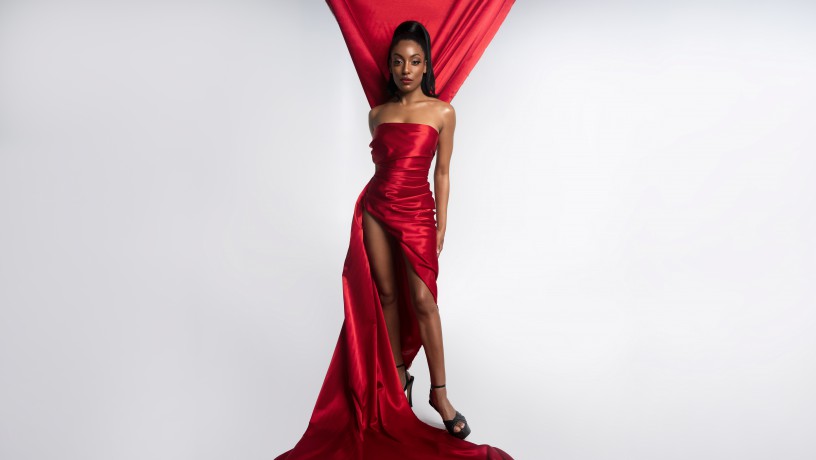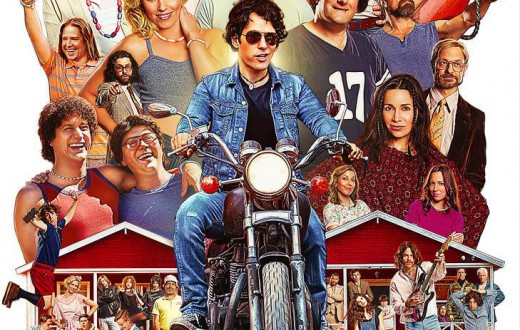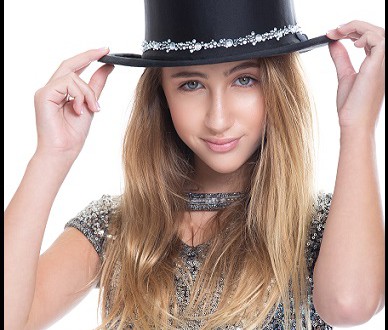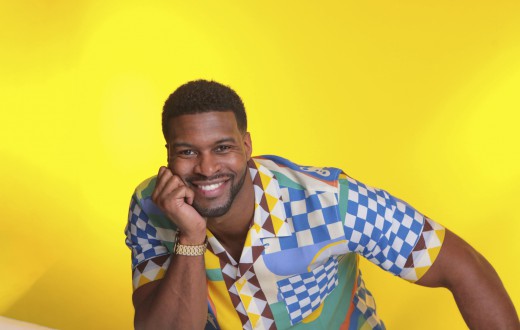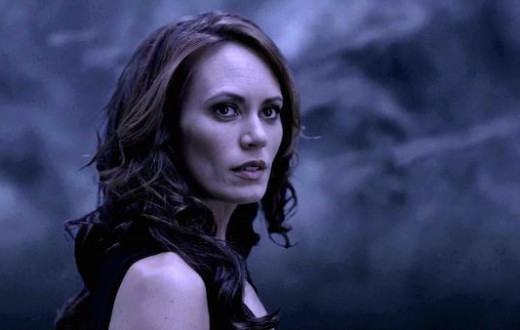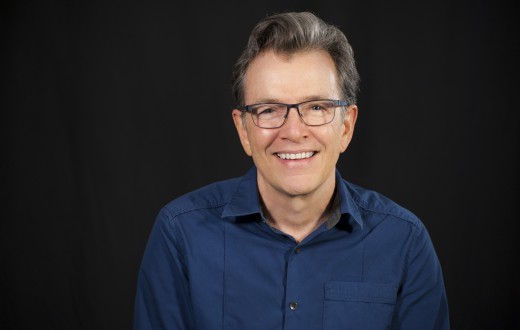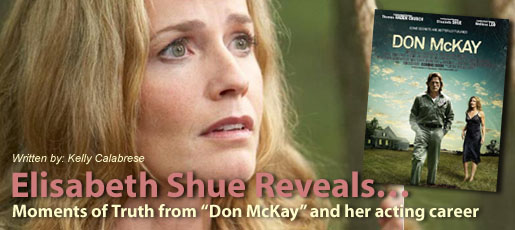Anissa Felix, who you can catch on Netflix’s Survival of the Thickest, gave us an in-depth look at how her professional life has impacted her personal life.
You’ll also find valuable advice as to how she approaches auditions, characters and a strong work ethic.
Beyond her artistic pursuits, Anissa Felix has also become an influential figure, using her platform to advocate for important causes and inspire others to pursue their dreams. Her impact extends beyond the boundaries of the stage and screen, making her a true role model for aspiring artists.
You’re in Netflix’s highly-anticipated series Survival of the Thickest. Tell us about your audition for the character of India.
After memorizing, breaking down scenes, and coming up with my preliminary version of the character, I’m ready to tape. My typical audition process includes me going either to Manhattan or Brooklyn to a studio, where I work with someone who coaches, tapes and edits my footage for me. This really cuts down on the stress of worrying about the technical part of the audition and I can just focus on “doing the work”.
In terms of “costume”, my philosophy is to merely “hint” at the character that I’ve created, rather than being super literal. This gives the producers space to project their idea of the character on me, rather than making that decision for them. Even though I came in prepared with my own idea of who India is, she actually differed a lot by the time when we actually got to shoot it. If I’d come in full-costume, it may have distracted from their vision. For a role like this, I kept it easy with a plain black crop top and slightly tousled hair.
About 1.5 weeks later, I got a callback, which we did on Zoom. It was a chemistry-read opposite my scene partner and I think about 40 people were on the call. I know that sounds super intimidating because there were Netflix execs and directors on there, but we were cracking jokes and having a nice time which really lowered the stakes. I think because I was so relaxed, it really gave my character, India, that cool, easy air about her. She’s way cooler than I am in real life.
Take us on a journey into your character’s world. We’d love to hear about the complexities, motivations, and experiences that make your character unique. How do you approach portraying this role, and what aspects of the character resonate with you on a personal level?
Without giving any spoilers, I’ll say this — India seems to be the carefree “dream girl”, but she’s not nearly as decisive and confident as she appears. She has a beautiful heart and strives to see the best in others, but it’s to a fault. She chooses to “ignore” the obvious in order to have the best of both worlds.
India has some life experiences that greatly differ from my own, so I really had to use substitution to find parallels. I used family members that I love dearly and related them to her own in order to connect with her experience.
How do you approach tapping into deep emotions and portraying them authentically on stage or screen? Are there any specific techniques or personal processes you rely on to connect with your character’s emotions and evoke such impactful moments for the audience?
I’ve studied so many different techniques, from Uta Hagen, to Practical Aesthetics, to Stansilavski. And I believe in mixing and matching the techniques depending on the role. I’m well served by working outside -in. I like to play with the physicality of the character first. For example, you’ll almost never see me in a scene where I’m sitting, or standing completely straight. I love finding where my character’s center of gravity is. So maybe, if she’s a rough-and-tumble biker chick, I might feel inclined to lead with my chest or my pelvis. Maybe the character is unsure of herself, then I might angle myself away from the reader and avert my eyes as much as possible. How my body takes up space really informs how I approach the character.
You’re an actress, singer, and dancer who made her Broadway debut in Motown the Musical as a Swing. How do you approach the process of learning and rehearsing multiple roles? Please walk us through your preparation and study methods.
Being a swing means understudying multiple ensemble roles and sometimes the principle roles as well. It was probably the most difficult job I’ve ever done in my career but it’s how I cut my teeth in this business.
I learned from the more experienced swings in our cast to approach it technically, rather than just artistically. So I had color-coded flashcards for each character and each scene, as well as blocking, vocal parts, and costume changes. Each actor had about four specialties, so I ended up covering eight tracks which totaled about 35 different characters. There were no shortcuts with that job. If I was in the wrong place, I might get kicked in the head accidentally, because that’s where a dancer was supposed to land. While I was doing a costume change for one character, I’d have to sing into my wig mic to back up vocals. I like to think that if I could do that job, I can do anything. No other job has been as difficult as that one. I’m just lucky it was my first.
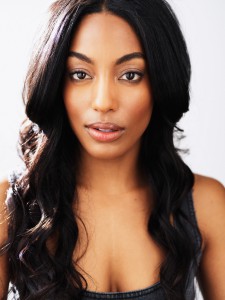
You went on to continue in more Broadway shows such as Sunset Boulevard and Summer: The Donna Summer Musical. What challenges have you faced as a Broadway performer, and how did you overcome them?
Broadway is the pinnacle of commercial theater. It’s been my childhood dream. But one thing I didn’t account for was the actual labor of performing eight shows a week. I began to feel it in my joints, my voice, and my spirit.
For my body, I began to work out and take better care of myself. I discovered weight lifting and massages, to make my body stronger. When you do the exact same movements in the exact same order every day for over a year, your body becomes lop-sided and you begin to compensate in strange ways. That’s when I started to shift how I think about my body and what it did for me.
In terms of my voice. I began getting professionally scoped. I became monk-like in how I treated my instrument. I ended up having a vocal issue that I had to invest time in to repair. But luckily, I’m back in good vocal health.
In terms of spirit, this was the most difficult one. I used to have this mindset that I couldn’t bear to miss a day of work. Even though I had vacation days, I felt like I couldn’t take the time off, so I missed a lot of family events. I forgot that I had to be a person first. And that those special moments don’t come back again. I think COVID changed our industry and perspective a bit on how we take care of our personal lives. And I think these changes are for the better.
You’re dedicated to promoting diversity and inclusivity in the entertainment industry. As a member of the actor unions AEA and SAG-AFTRA, how have you personally been involved in these efforts?
I’m currently on the Young Professional’s committee for New York Theatre Ballet. My heart sits with the LIFT Program, where NYTB goes to homeless shelters in upper Manhattan and teaches introductory Ballet classes to the children that live there. Some of the kids even have the opportunity to join the school on scholarships. It’s so important, for many of the kids, it’s their first up-close introduction to the arts. One that many of the students would’ve never come in contact with before. NYTB’s LIFT program takes away the preconceived idea that art, of any kind, is only reserved for the “wealthy”. It shows us that art is healing for everyone.
What are the key differences you’ve noticed between performing on stage and in front of the camera? How do these differences impact your approach to acting, and what adjustments do you make when transitioning between the two mediums?
I think the biggest difference between On-Camera and Stage acting is scale. You use the same scene study approach, the same thought processes, and the same bodywork, but the “size” of your response is different. While I was working on my Broadway shows, I was taking On-Camera classes, and the most difficult thing for me to get the hang of was stillness. On-screen, if you gesticulate or use larger facial expressions, you overwhelm the camera. The intention of the scene can be right on, but you don’t have to hit the back of a house with your voice. The mezzanine doesn’t need to see (or hear) those tears. You don’t even have to articulate the same way. It was releasing myself from the notion of having to “show” my feelings rather than just “feel” them that makes the difference.
And I find that when I do return to the theater for readings and auditions, my film-acting brain now kicks in and it gives me a more nuanced and realistic performance. I’ve just “zoomed in” and scaled-down and I feel like I’m a better actor because I have the two under my belt.
You have a background in dance and singing. How has your dance and singing training influenced your approach to acting, and do you find ways to incorporate dance and singing elements into your performances?
As I mentioned earlier, I’m an outside-then-inside actor, so movement, dance, and physicality have always been a part of that process. I’m comfortable in my body and have a high sense of spatial awareness simply because I started dancing at a young age. I find that to be valuable not just in acting, but in life. I’m listening to my body and that informs how I use it to create character.
For me, singing is incredibly vulnerable. I always considered myself an actor rather than a vocalist, so I would use my acting to get through the storytelling in a song. But with that vulnerability in using my voice, comes a strength in knowing that I can take risks. Knowing how to manipulate my voice means I feel more confident taking on new accents, vocal qualities, and characteristics without embarrassment. I can sustain long monologues because I have breath control. It all ties in.
What advice do you have for aspiring actors looking to become a part of the show business world?
I’d say that as much as this is a business of people. There is no “system”. There is no entity that creates fate. It’s just people working with people to make decisions.
I’ve been really lucky to have found incredible mentors. These mentors saw something of me in themselves and from the goodness of their hearts, gave me insight, and opportunities, and opened doors that I wouldn’t have been open myself. In this business, you never do anything completely by yourself. So take a risk and DM that person on IG and ask to take them for a cup of coffee to hear their acting journey. The worst that could happen is you get a “no”, the best is that you have a person who’s willing to take a chance on you.
Anything else you’d like to say?
You can see me next in BET+ ’s new show Diarra from Detroit, premiering this fall!
Socials: TikTok / Instagram / Twitter

